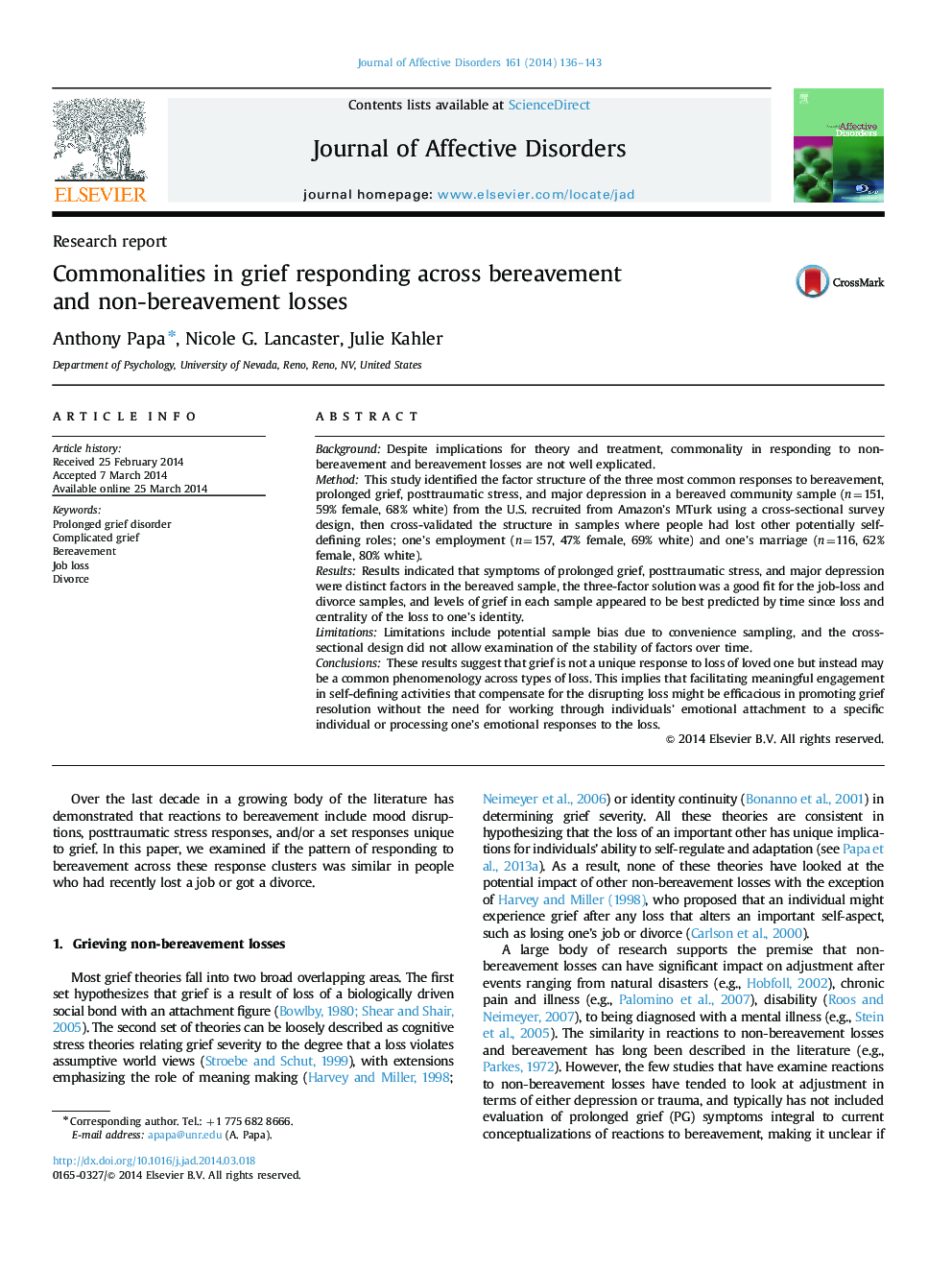| Article ID | Journal | Published Year | Pages | File Type |
|---|---|---|---|---|
| 6232942 | Journal of Affective Disorders | 2014 | 8 Pages |
BackgroundDespite implications for theory and treatment, commonality in responding to non-bereavement and bereavement losses are not well explicated.MethodThis study identified the factor structure of the three most common responses to bereavement, prolonged grief, posttraumatic stress, and major depression in a bereaved community sample (n=151, 59% female, 68% white) from the U.S. recruited from Amazon's MTurk using a cross-sectional survey design, then cross-validated the structure in samples where people had lost other potentially self-defining roles; one's employment (n=157, 47% female, 69% white) and one's marriage (n=116, 62% female, 80% white).ResultsResults indicated that symptoms of prolonged grief, posttraumatic stress, and major depression were distinct factors in the bereaved sample, the three-factor solution was a good fit for the job-loss and divorce samples, and levels of grief in each sample appeared to be best predicted by time since loss and centrality of the loss to one's identity.LimitationsLimitations include potential sample bias due to convenience sampling, and the cross-sectional design did not allow examination of the stability of factors over time.ConclusionsThese results suggest that grief is not a unique response to loss of loved one but instead may be a common phenomenology across types of loss. This implies that facilitating meaningful engagement in self-defining activities that compensate for the disrupting loss might be efficacious in promoting grief resolution without the need for working through individuals' emotional attachment to a specific individual or processing one's emotional responses to the loss.
